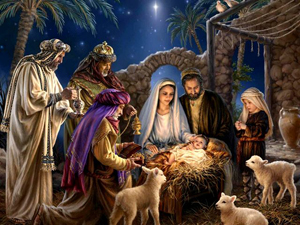 Most Christians understand that the exact date of Jesus’ birth is unknown.
Most Christians understand that the exact date of Jesus’ birth is unknown.
In his book about Jesus, Bill O’Reilly speculates that Jesus was probably born sometime during the spring season. However, the Bible itself plus Jewish history gives us enough clues that Bill is wrong. Allow me to share a little Bible history that might be new to you. Here are some of these clues.
First, from the Gospel of Luke, we know that Zechariah, John the Baptist’s father, was a “priest of Abijah’s division.” Furthermore, Jewish historians tell us that priests in this division were given the responsibility of serving during a two-week period in May and June of our calendar.
The second clue for determining when Jesus was born (approximately) is that John the Baptist was conceived shortly after that May and June period of priestly service (Luke 1:23-24).
But note what happened next. Mary became pregnant with Jesus when Elizabeth was in her sixth month of pregnancy (Luke 1:36). This means that John the Baptist would have been born in February or March, but Jesus was born approximately six months later, sometime in early autumn.
The fact is, we don’t know the exact date—which doesn’t really matter. It’s clear that God has given us the freedom and privilege of celebrating His birth whenever we choose. Most of us, of course, choose to join in with people around the world to celebrate Christ’s birth on December 25th—a date that was determined centuries ago to provide people with an alternative to the pagan celebrations.
I’m thankful that God has given us the freedom to rejoice with others in celebrating the miracle of Christ’s birth—no matter what the specific date. This freedom also includes where we celebrate. No matter what we do on this special day, we should focus on the real meaning of Christmas. When we exchange gifts, it should remind us of the greatest gift that God ever gave. When we sing songs, we certainly can rejoice—but again to always to remember the true meaning of Christmas.
